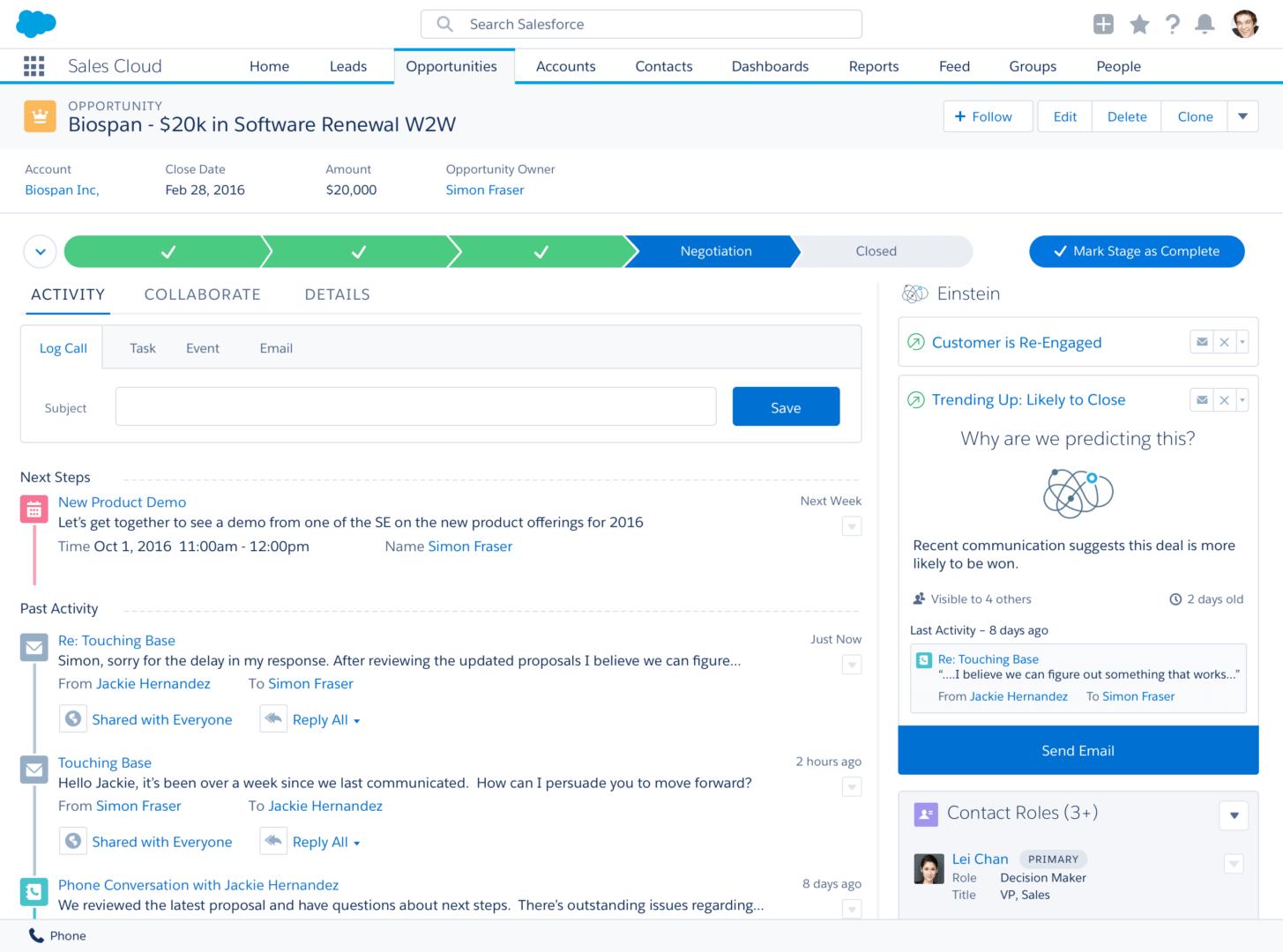
Salesforce Einstein Analytics & Marketing Cloud: Complete Buyer's Guide
Enterprise standard for AI-driven marketing transformation
Salesforce Einstein Analytics & Marketing Cloud represents the enterprise standard for AI-driven marketing transformation, combining predictive analytics with autonomous campaign execution in a unified platform. The platform combines Einstein's predictive modeling with Marketing Cloud's execution infrastructure, creating a unified environment for AI-driven customer engagement at enterprise scale.
Market Position & Maturity
Market Standing
Salesforce Einstein Analytics & Marketing Cloud commands a premium position in the enterprise AI marketing landscape, leveraging the company's extensive CRM ecosystem and market leadership to deliver integrated predictive analytics capabilities.
Company Maturity
Salesforce's $31.35 billion annual revenue and consistent growth trajectory demonstrate financial stability and continued investment capacity in AI development [43].
Growth Trajectory
Growth trajectory indicators show continued investment in AI capabilities through the Agentforce platform and Einstein Analytics enhancements.
Industry Recognition
Industry recognition includes consistent placement in major analyst reports and enterprise technology evaluations.
Strategic Partnerships
The platform's integration with Salesforce's broader ecosystem provides strategic partnerships with major technology vendors and system integrators.
Longevity Assessment
Long-term viability assessment indicates strong stability through Salesforce's established market position, diversified revenue streams, and extensive customer base.
Proof of Capabilities
Customer Evidence
Shazam's exceptional implementation achieved 752% ROI and $246,896 in annual savings through reduced reporting overhead, completing deployment in just 6 weeks without external consultants [51].
Quantified Outcomes
Target Corporation's demand forecasting implementation demonstrates sustained business impact, achieving 18% inventory cost reduction through AI-driven predictions [58].
Case Study Analysis
Enterprise engagement improvements show consistent performance across customer implementations, with the platform's customer journey mapping capabilities delivering documented 25% engagement lift through AI-enhanced personalization [4][20].
Market Validation
Michaels Stores personalization success achieved 95% of email campaigns personalized with 25% improvement in click-through rates [27].
Competitive Wins
Coca-Cola's 'Share a Coke' campaign leveraged AI-personalized content to achieve 25% higher engagement compared to traditional approaches [20][22].
Reference Customers
Netflix churn reduction achieved 25% reduction in customer churn using predictive content recommendations integrated with Marketing Cloud's campaign automation [20].
AI Technology
Salesforce Einstein Analytics & Marketing Cloud's technical foundation centers on three integrated AI capabilities: predictive analytics, generative content creation, and autonomous campaign management.
Architecture
The Customer 360 architecture represents the platform's core technical differentiator, creating a unified data layer that addresses the fragmented customer data challenges affecting 68% of marketers [56][57].
Primary Competitors
Altair AI Studio offers superior AutoML accessibility for non-technical users, enabling model deployment without coding expertise that Salesforce requires [44][57].
Competitive Advantages
Primary competitive advantages center on integrated ecosystem delivery and Customer 360 architecture that addresses fragmented customer data challenges affecting 68% of marketers [56][57].
Market Positioning
Market positioning analysis indicates Salesforce commands premium positioning through ecosystem integration rather than pure AI capabilities.
Win/Loss Scenarios
Win/loss scenarios favor Salesforce in enterprise environments with existing Salesforce ecosystems, complex multi-channel requirements, and substantial technical resources.
Key Features

Pros & Cons
Use Cases
Integrations
Pricing
Featured In Articles
Comprehensive analysis of AI Predictive Analytics for AI Marketing & Advertising for AI Marketing & Advertising professionals. Expert evaluation of features, pricing, and implementation.
How We Researched This Guide
About This Guide: This comprehensive analysis is based on extensive competitive intelligence and real-world implementation data from leading AI vendors. StayModern updates this guide quarterly to reflect market developments and vendor performance changes.
59+ verified sources per analysis including official documentation, customer reviews, analyst reports, and industry publications.
- • Vendor documentation & whitepapers
- • Customer testimonials & case studies
- • Third-party analyst assessments
- • Industry benchmarking reports
Standardized assessment framework across 8 key dimensions for objective comparison.
- • Technology capabilities & architecture
- • Market position & customer evidence
- • Implementation experience & support
- • Pricing value & competitive position
Research is refreshed every 90 days to capture market changes and new vendor capabilities.
- • New product releases & features
- • Market positioning changes
- • Customer feedback integration
- • Competitive landscape shifts
Every claim is source-linked with direct citations to original materials for verification.
- • Clickable citation links
- • Original source attribution
- • Date stamps for currency
- • Quality score validation
Analysis follows systematic research protocols with consistent evaluation frameworks.
- • Standardized assessment criteria
- • Multi-source verification process
- • Consistent evaluation methodology
- • Quality assurance protocols
Buyer-focused analysis with transparent methodology and factual accuracy commitment.
- • Objective comparative analysis
- • Transparent research methodology
- • Factual accuracy commitment
- • Continuous quality improvement
Quality Commitment: If you find any inaccuracies in our analysis on this page, please contact us at research@staymodern.ai. We're committed to maintaining the highest standards of research integrity and will investigate and correct any issues promptly.